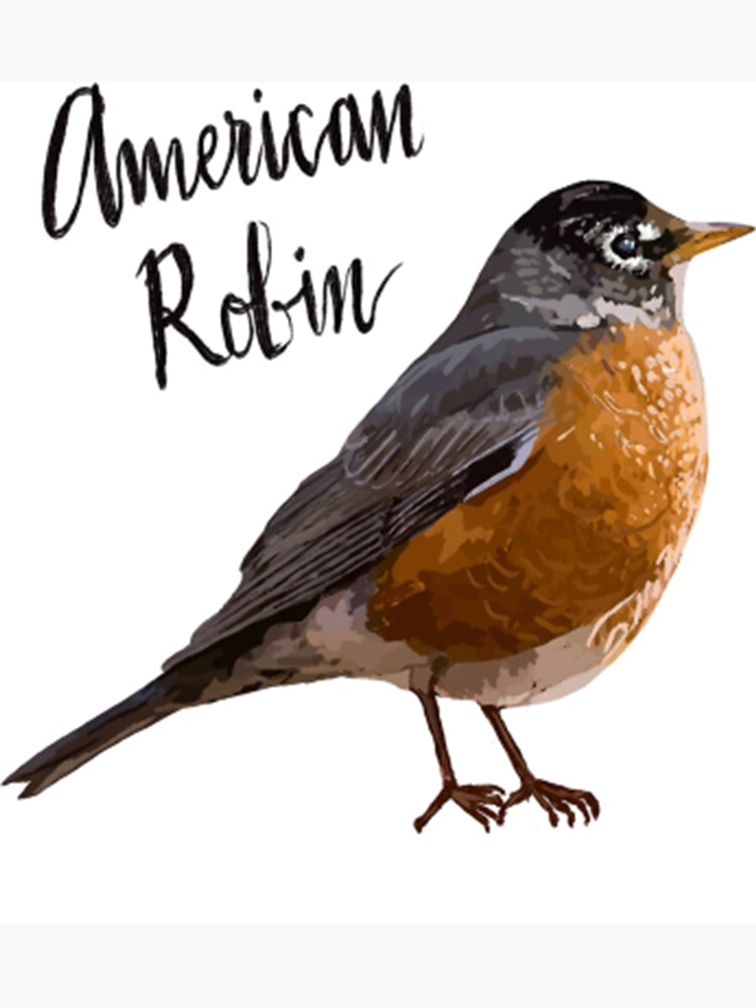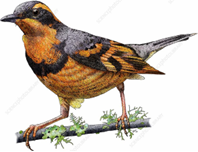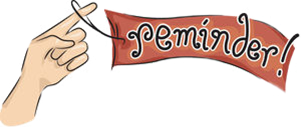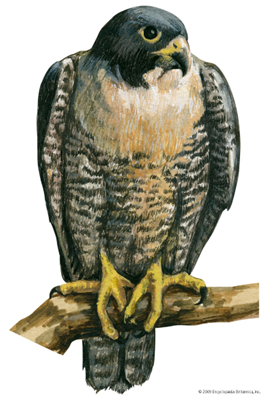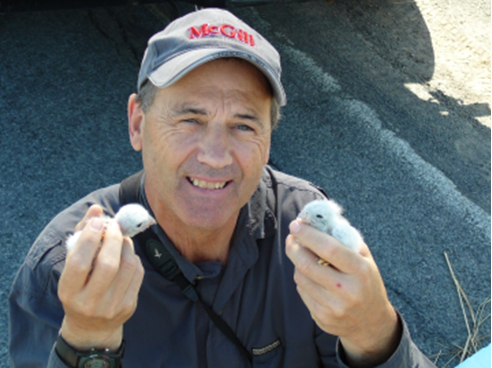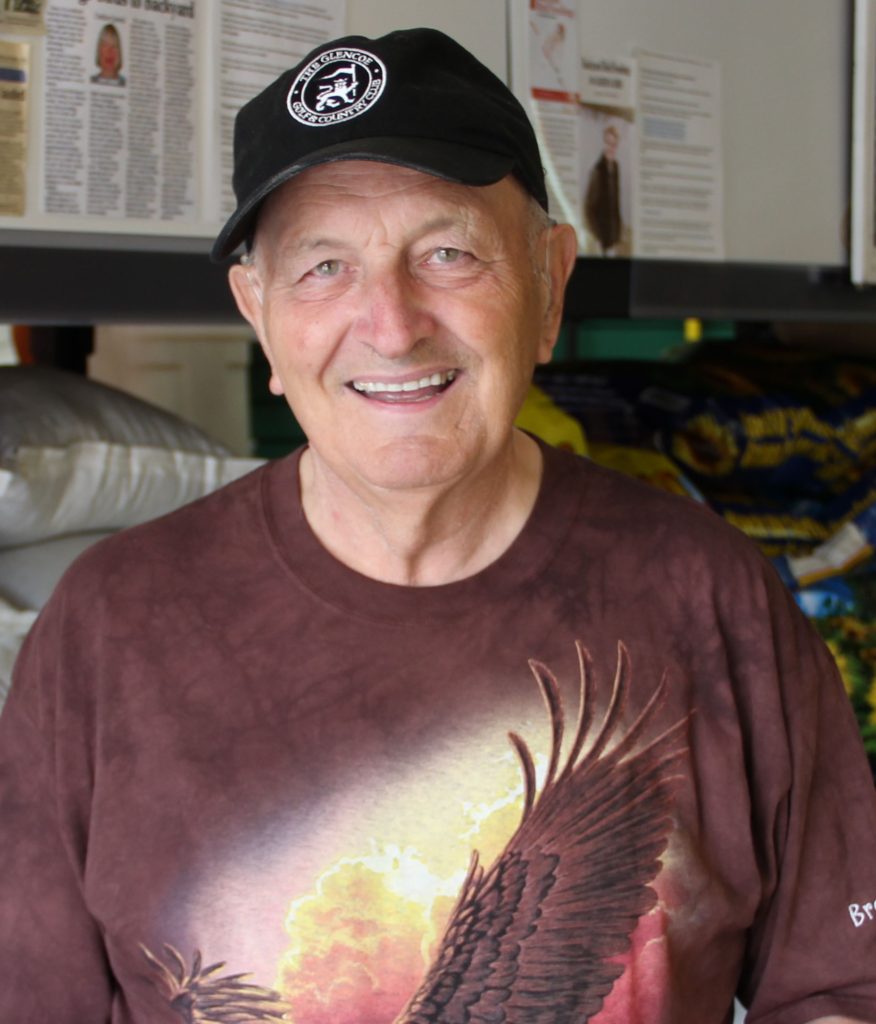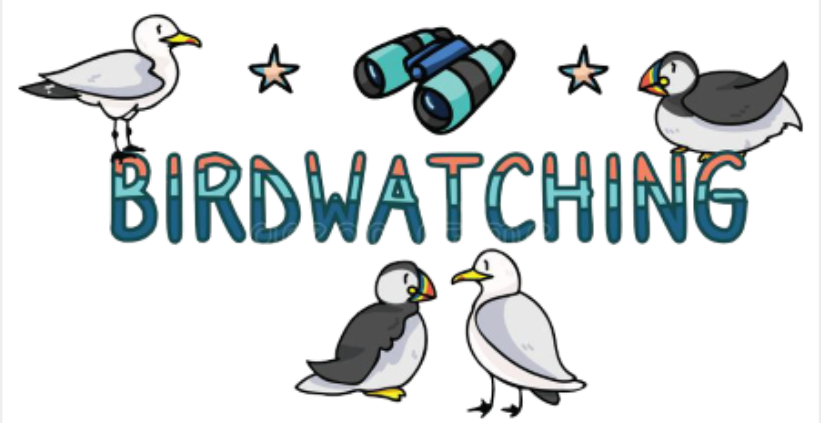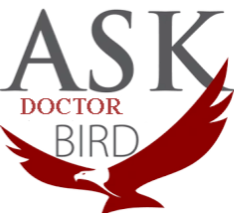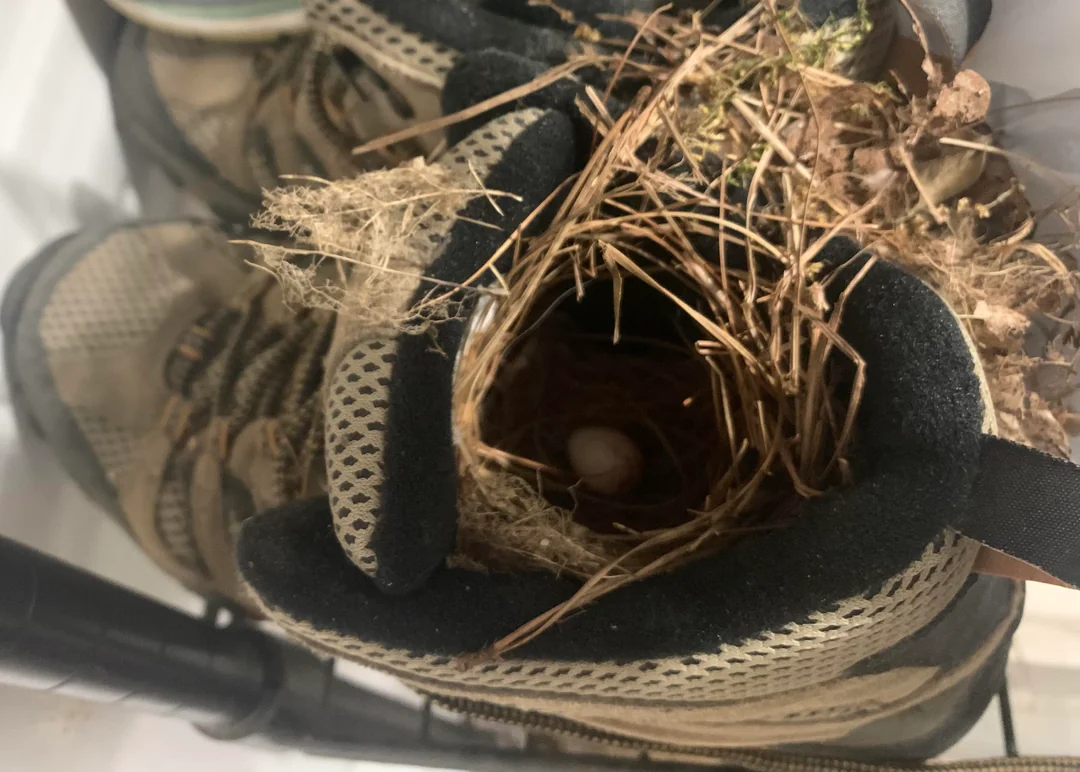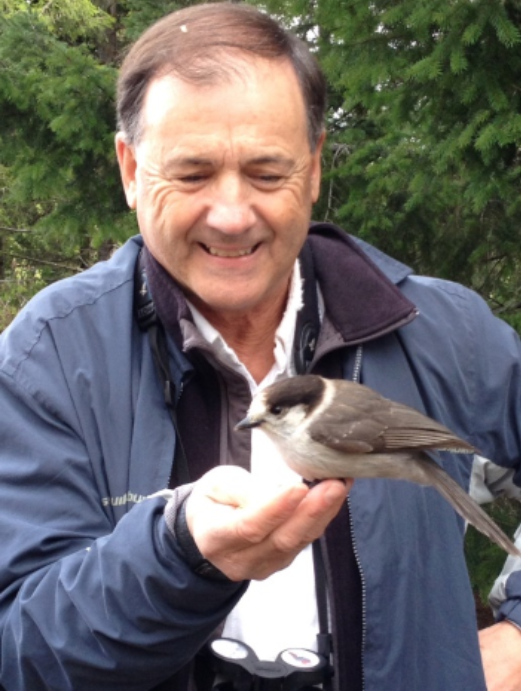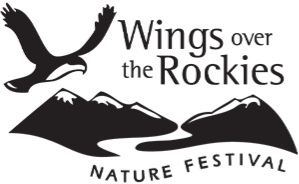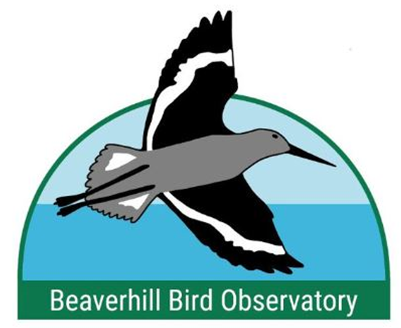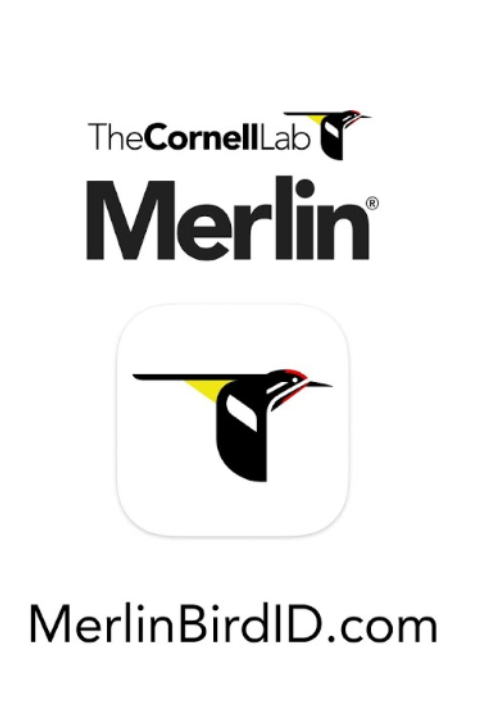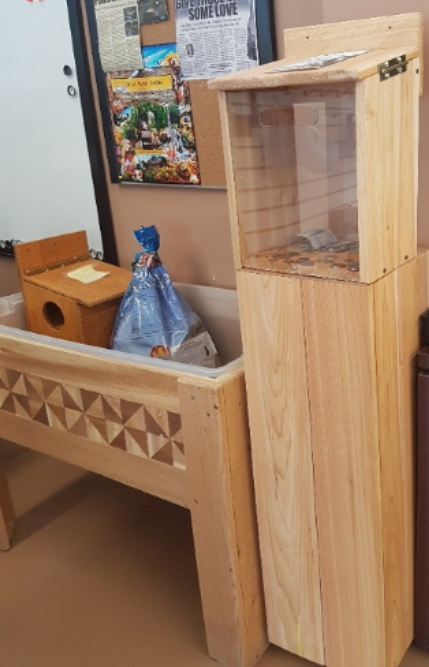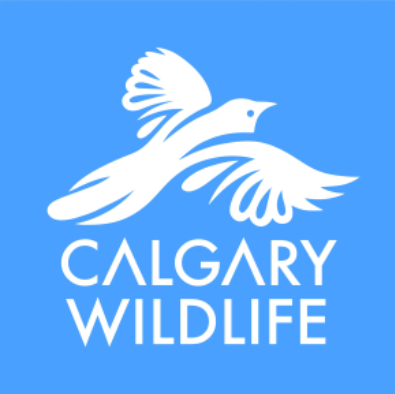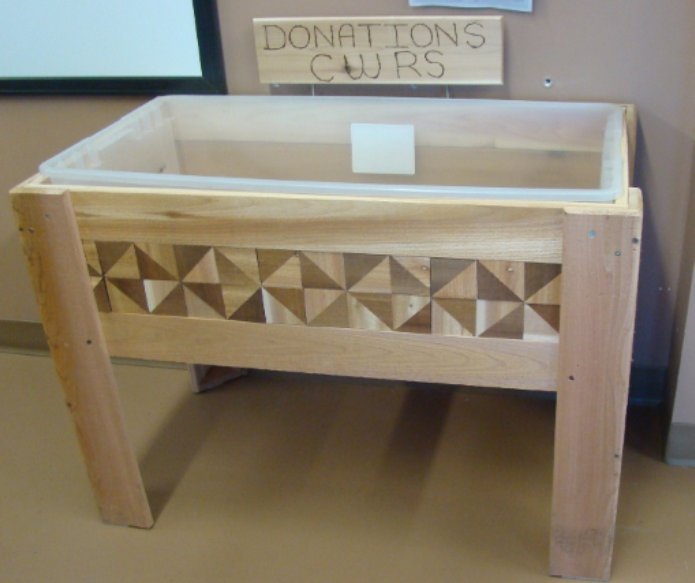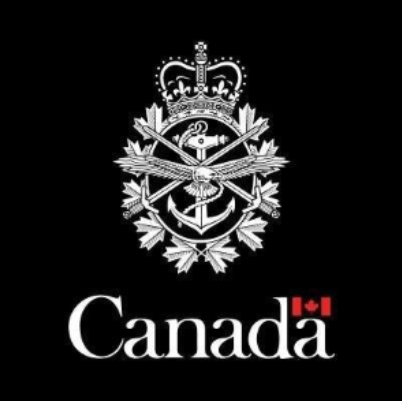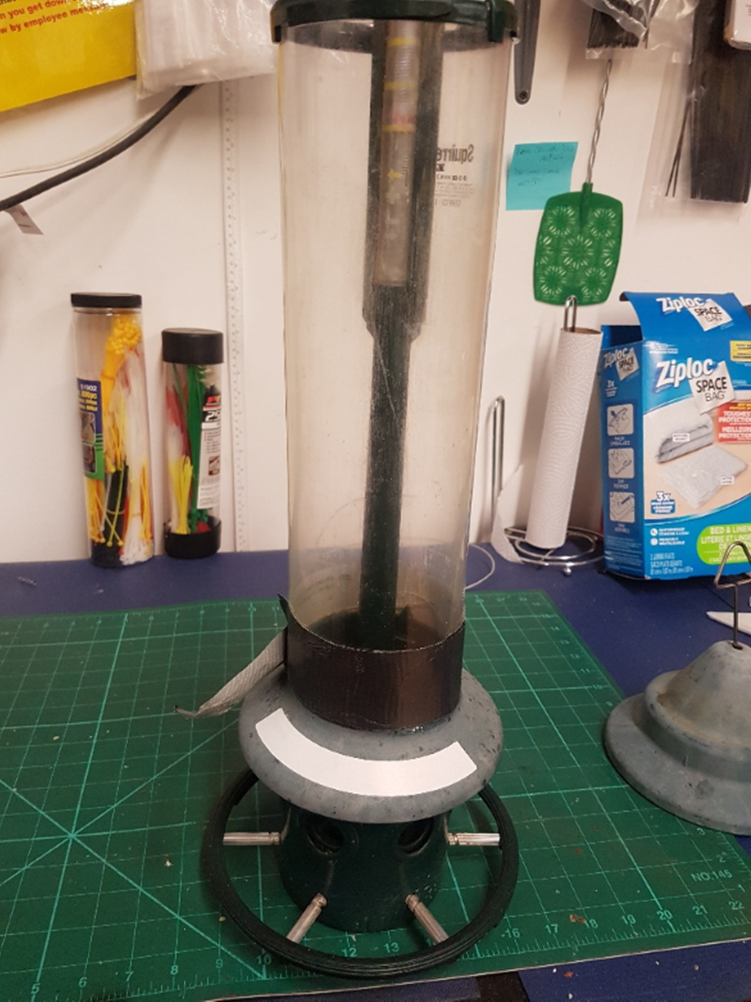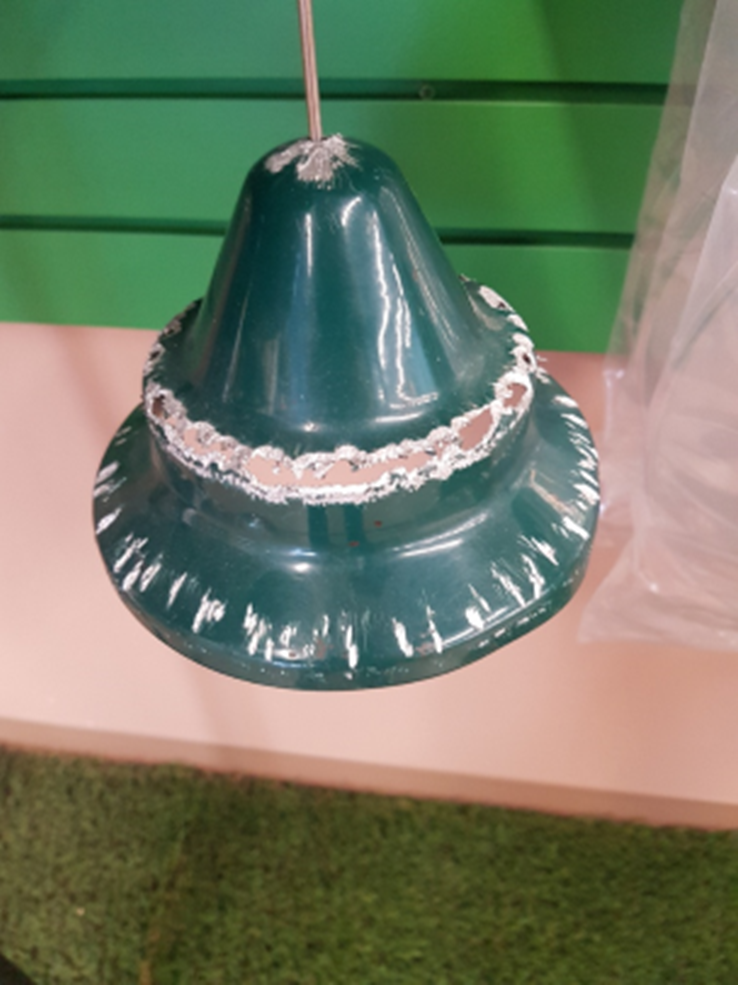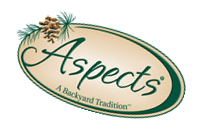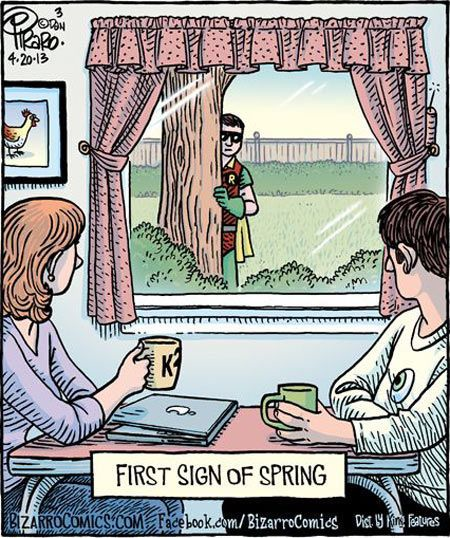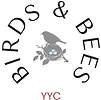LINK TO PDF NEWSLETTER DOWNLOAD
Most people think of the American robin has the first harbinger of Spring, but in truth more and more Robins are wintering over in Alberta each year.
Researchers don’t fully understand why some Robins choose to migrate while others do not. Females are more likely to journey south in winter than males, so it is possible more males opt to stay to give them an advantage when establishing a breeding ground in Spring. The early bird gets the worm, so to speak, although in this case the metaphorical worm is first pick of the best breeding grounds.
When Robins migrate, it’s access to food that drives their journey, not temperature. They can withstand cold winter temperatures, but in the winter, they mainly eat fruit. If fruit isn’t readily available, they will move around in search of a good food supply. In cold winter weather, they need more food, and food becomes increasing scarce as Robins and other birds eat the remaining fruit supply, so they tend to congregate in areas where a lot of fruit is present.
These winter flocks of birds can include hundreds or even thousands of Robins, but they may remain mostly out of sight, unless you happen to be close to a steady supply of fruit like crabapples and berries from hawthorn, holly and juniper. Robins are also much quieter in winter, making very little noise at all, which helps explain how even large flocks of Robins can go largely unnoticed.
We often think Robins have returned to the area in the Spring because the large flocks of Robins disperse and start appearing where we are used to seeing them: feasting on earthworms in our yards. And while some of these Robins may have just returned from points south, others were here all along, just not where we are used to seeing them.
And there’s one more reason we often think of Robins as a first sign of Spring. It’s not just that they suddenly seem to pop up around our homes at this time of year, but we also hear them more in early Spring. The song of a male Robin is identifiable to many people, and early Spring is when they start to sing their familiar song. Among Robins that do migrate, males arrive back on their breeding grounds a week or two before the females, but they will start singing as soon as they arrive as a means of defending their chosen territory.
Varied Thrush
The male Varied thrush sings an ethereal and scratchy whistled note of around two seconds in duration, waits for several seconds, and then sings another similar whistled note on another pitch.
For unknown reasons, populations of the Varied thrush increase and then decrease every two years.
The Varied thrush is not closely related to other Thrush species in North America. It looks more like some Thrush species in Asia and even sounds somewhat like the White’s thrush of northeastern Asia.
The wings of the Varied thrush are fairly long and suited to flying long distances in search of fruiting trees.
Varied thrushes eat a variety of insects and other small creatures during the summer months, and then switch to eating berries like salmonberries, snowberries, apples and other fruits which they quietly pick with their bill while perched in shrubs and trees, or during brief hovering in flight. They also eat acorns and forage on the ground for bugs, worms and other arthropods by carefully lifting and moving leaves with its bill and then snatching the bugs and worms it finds.

Peregrine Falcon
The Peregrine falcon is one of the most widespread birds in the world. It is found on all continents except Antarctica, and on many oceanic islands.
People have trained falcons for hunting for over a thousand years, and the Peregrine falcon was always one of the most prized birds. Efforts to breed Peregrine in captivity and reestablish populations depleted during the DDT years were greatly assisted by the existence of methods of handling captive falcons developed by falconers.
After World War 11 the Peregrine falcon suffered a precipitous population decline throughout most of its global range. In most regions, including North America, the chief cause of the decline was traced to the pesticide DDT, which the birds had obtained from their avian prey. The chemical had become concentrated in the Peregrine’s tissues and interfered with the deposition of calcium in the eggshells, causing them to be abnormally thin and prone to breakage.
The Peregrine falcon is a very fast flier, averaging 40-55 km/h in travelling flight, and reaching speeds up to 112 km/h in direct pursuit of prey. During its spectacular hunting stoop from heights of over 1km, the Peregrine may reach speeds of 320 km/h as it drops toward its prey.
Since at least 1995, Peregrine falcons have nested on Craigie Hall at the University of Calgary. For the past few years, there has been a live nest cam so that we can watch the falcons at the nest, and see the young falcons hatch and fledge.
The American Kestrel: Common to scarce
Monday, June 10, 2024 5:30pm to 7:00pm
Tickets $25.00 + GST can be purchased through our website:
www.wildbirdstore.ca
This presentation by Dr. David Bird will provide the latest figures on population trends, assess the various hypotheses, and conclude with a discussion of what can be done and what is being done to stem the decline.
As an Emerritus Professor of Wildlife Biology of McGill University in Montreal, Quebec, Dr. Bird has published close to 200 peer-reviewed scientific papers and supervised 50 graduate students on a wide range of wildlife themes, mostly on birds of prey and in more recent years, the application of UAV’s (drones) to wildlife research and conservation. Until his retirement to Vancouver Island in 2013, he taught several university—level courses, including ornithology, wildlife conservation, animal behavior, and scientific/public communication. He has written and/or edited more than a dozen books, the most recent ones being the third edition of Birds of Canada, the second edition of Pocket Birds of Canada, and The Canada Jay—A National Bird for Canada?
Besides his innumerable public lectures and radio, television and newspaper appearances, Dr. Bird is a regular columnist/contributor on birds for two magazines, Canadian Wildlife and BWD (formerly know as Bird Watcher’s Digest). He is currently heading a national team to establish the Canada Jay as Canada’s national bird.

All participants on any bird walk must have purchased a ticket through our website – www.wildbirdstore.ca and present the ticket to Jim prior to the bird walk. The weather plays a big part in bird walks and Jim reminds participants to dress anticipating weather changes and to carry water to keep hydrated.
Jim has been working very hard to resume his regular bird walks and appreciates your encouragement and support after his recent surgery.
Tickets for any of Jim St. Laurent’s Saturday morning bird walks can be purchased on the Wild Bird Store website: www.wildbirdstore.ca/events/
Then search the month for the walk.
Saturday, May 4, 2024 Frank Lake Day Trip
9:00am Leaving from Wild Bird Store rear parking lot.
Stopping at Policeman’s Flats on way south
Saturday, May 18, 2024 North Glenmore Park—Weaselhead
9:00am meet in 37 St parking lot
Saturday, June 8, 2024 Weed Lake area (near Langdon) Day Trip
9:00am Leaving from Wild Bird Store rear parking lot.
Saturday June 22, 2024 Lafarge Meadows FCP
From boat launch parking lot at south end of Bow Bottom Trail.

We offer a discount if you return your 20 LB or 40 LB seed bags so that we can re-use them (sorry—not the Mother Nature bags which we cannot re-use), suet ball containers, or if you bring your own container or bag to fill . This discount is in addition to any other discount offered.
Question:
We got a surprise last spring when we discovered a pair of house wrens nesting inside an old metal watering can in our backyard. Is this unusual?
Response:
I am not surprised to learn of this nesting behaviour. Other interesting nest sites in the scientific literature include glove compartments of abandoned cars, old shoes, pockets of old coats, and under the covers of propane tanks. Some species of songbirds build multiple nests and wrens are particularly prone to this practice. For instance, male Carolina Wrens begin several so-called dummy nests in their territories after which the female chooses one and completes its construction and decoration. But as for the function of that multi-nest building behavior, things are far from clear. There has been a lot of guesswork out there to date. Here are some leading hypotheses. First, these nests may signal to other cavity-nesting species that this is a wren’s territory and they risk getting their eggs punctured by the aggressively territorial birds should they use that particularly cavity. It is a way of reducing competition for resources. Second, having a partially built nest, as a staged home so to speak, might be more appealing to would-be female partners. Third, the male’s partial efforts at supplying some of the nest materials might expedite the building of the final nest and allow the pair to quickly get on with the business of raising young. Fourth, it could simply demonstrate the male’s fitness to the female. The more industrious he is with this task, the better parent to the nestlings he might be. Fifth, having so many dummy nests could make finding the real nests just a wee bit harder and force predators to look for easier prey. Finally, I will add a sixth possibility and certainly not a mutually exclusive one. Perhaps the whole process merely strengthens the pair bond between the two partners. Someday, scientists will test all of these hypotheses one by one and only then will we finally know why they do it!
David M. Bird, Ph.D., Emeritus Professor of Wildlife Biology, McGill University www.askprofessorbird.com

David M. Bird is Emeritus Professor of Wildlife Biology and the former Director of the Avian Science and Conservation Centre at McGill University. As a past-president of the Society of Canadian Ornithologists, a former board member with Birds Canada, a Fellow of both the American Ornithological Society and the International Ornithological Union, he has received several awards for his conservation and public education efforts. Dr. Bird is a regular columnist on birds for Bird Watcher’s Digest and Canadian Wildlife magazines and is the author of several books and over 200 peer-reviewed scientific publications. He is the consultant editor for multiple editions of DK Canada’s Birds of Canada, Birds of Eastern Canada, Birds of Western Canada, and Pocket Birds of Canada. To know more about him, visit www.askprofessorbird.com or email david.bird@mcgill.ca.
Event ticket sales start 10:00am MDT, April 9, 2024
2024 Wings Over the Rockies Nature Festival May 6—12, 2024
Wings “Way Over” the Rockies—The BIG Picture
Our 27th annual festival is located in the beautiful upper Columbia River Valley centered around the mountain town of Invermere, British Columbia. Our Events Calendar will be viewable online starting Thursday, March 28, 2024. Buy your tickets online starting Tuesday, April 9 at 10:00am MDT. Please plan to be an “early bird” to get your event choices. Usually, 70% of our festival tickets are purchased on the first day.
We plan to have over 100 events during the 7 festival days, many new ones too!
We are excited to have as keynote speaker, Bob McDonald, host of CBC radio’s Quirks and Quarks program. Please plan to come and join us in 2024 as Bob and all of us explore “The BIG Picture”!
We are excited to announce the 2024 Snow Goose Festival is on Saturday, April 27, and Sunday, April 28, to celebrate the spring migration of snow geese through Beaverhill Lake near Tofield Alberta.
The festival includes several guided hiking and bus tours scheduled for each day, a free Trade Show in the Tofield Arena with kids crafts and activities, concessions, speakers, a Saturday Banquet & Silent Auction, and more!
This local birding festival is an annual celebration of Spring Migration in the boreal forest including tours of the LSLBO, nature workshops, birding hikes, children’s activities, and of course, everyone favorite, the early bird Pancake Breakfast For more information, please visit LSLBO’s website:
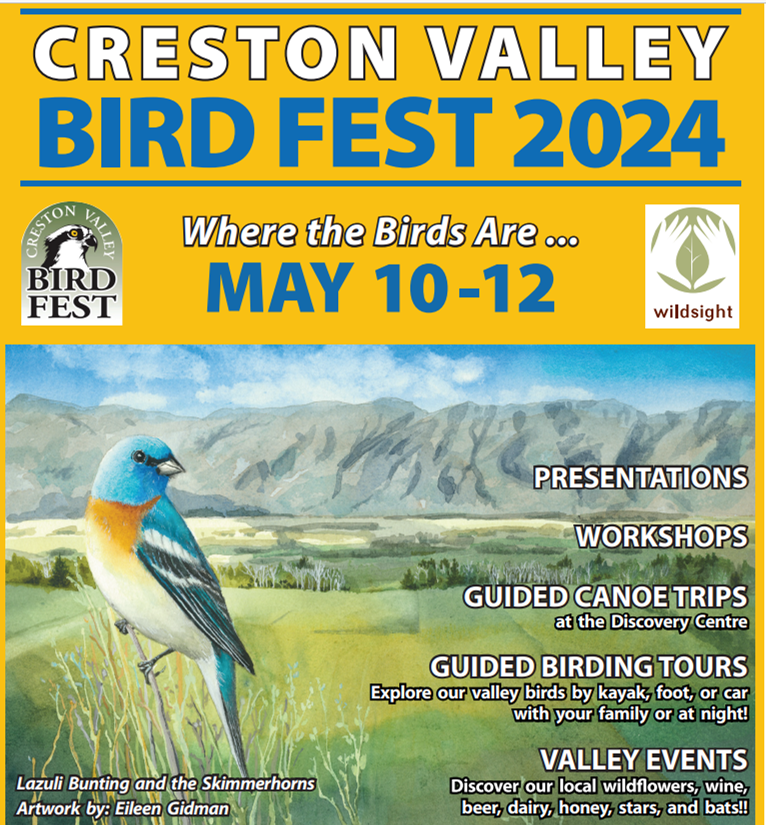
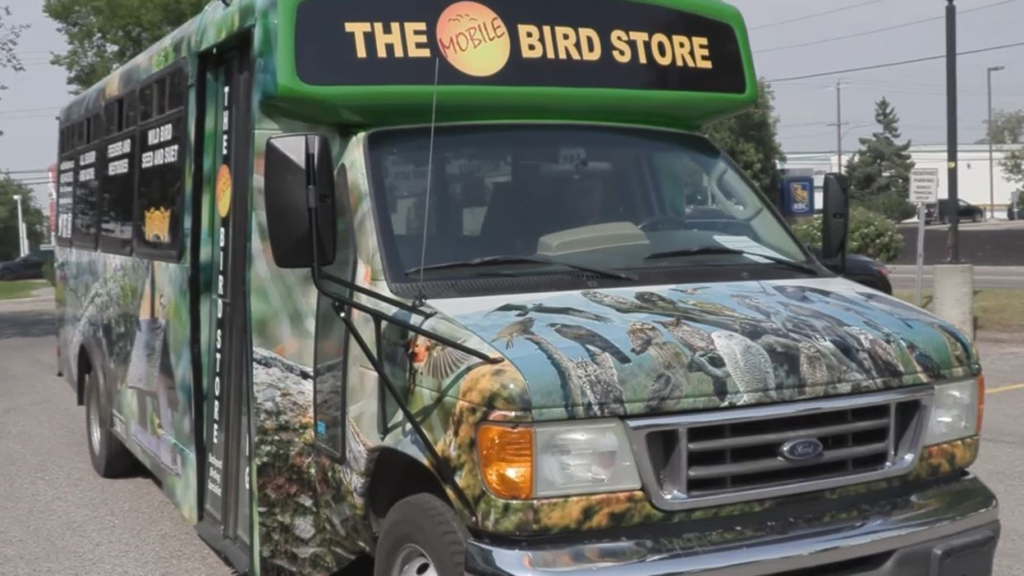

Wildwood Community Centre (4411 Spruce Drive SW): Every Tuesday 3:00pm to 6:00pm
Crowfoot Arena (corner of John Laurie & Nosehill Drive NW: Every Wednesday 2:00pm to 5:30pm
Please place orders by 12:00 noon the day before the truck is on location
Text us @ (403)701-4571 OR email us at orders@wildbirdstore.ca
Earn and redeem customer loyalty points on the Mobile Seed Truck

DELIVERY: Deliveries will still be made on Thursdays ONLY. Please phone the store at (403) 640-2632 any day prior to 12:00 noon on the Wednesday before your delivery; place and pay for your delivery. Please phone with your order as early as possible to avoid disappointment. If you have any special instructions please do not forget to inform us when you place your order.
PLEASE NOTE: STARTING IN MAY WE WILL BE GOING TO EVERY TWO WEEK DELIVERY. MAY 2, 16, 30
THE DELIVERY CHARGE WILL BE $10
MINIMUM ORDER FOR DELIVERY $25.
Do you need help attracting birds to your backyard?
Do you want advise on designing a backyard habitat for your feathered/winged friends?
Do you have a problem in your backyard we can help solve?
The Wild Bird Store in partnership with Andrew Barnes, now providing at home wild bird consulting service.
Specializing in helping you and your property become Wild Bird friendly for maximum results.
Services offered will include:
Bird feeder(s) recommendations for species focus and seed types
· Type(s) of seed and for which species it will be best suited
· Preferred location for maximum results
· Bird feeder accessories
· Hummingbird feeders and accessories
Nesting
· Nest box selection for native species—including all cavity nesting and platform species for Alberta
· Preferred location for nest boxes
· Maintenance tips
· Advice on how to deter invasive species (House sparrows and European starlings)
Watering needs
· Bird baths
· Heaters and heated baths
· Accessories including drippers and bubblers
· Location dos and don’ts
· Maintenance tips
Bat Houses/Chambers
· Location requirements
· Housing styles—including single vs multiple chambers
After each visit all discussion points and recommendations will be provided along with a 10% OFF coupon to be used at the Wild Bird Store on your next purchase.
PLEASE NOTE: 10% coupon is only valid for a one-time purchase and must be presented at time of purchase. In-store ONLY. ( All Discount restrictions apply)
For further information, pricing and scheduling, please contact
Andrew Barnes cell # (403) 923-8121 (call or text)
Email: birdsbeesyyc@gmail.com
Have you checked out the Merlin app? Would you like a demonstration on how they will help you to identify birds? Stop by The Wild Bird Store during regular business hours and staff will be happy to show you how the app will enable you to identify birds in various ways.
Identify Bird Songs and Calls
Identify Birds by your Photos
Save Birds to Your Life List
Explore lists of birds near your location
DONATIONS
Located at The Wild Bird Store (near the seed bins). We collect your cash as well as “wishlist” donations and arrange to deliver them to local wildlife organizations including Calgary Wildlife Rehabilitation, Alberta Institute of Conservation and Ellis Bird Farm.
We ask for your support quarterly for each of these organizations.
For March, April, May 2024 your donations will go to:
Calgary Wildlife
Thank you for your support
The Wild Bird Store offers the “Book Nook” as a gathering place for your next meeting. The room is for rent for $50.00 +GST which includes the set up of the chairs, video equipment is available and coffee, tea and water are available.
Please contact info@wildbirdstore.ca for more information or to reserve your spot.
Options for shopping at the Wild Bird Store
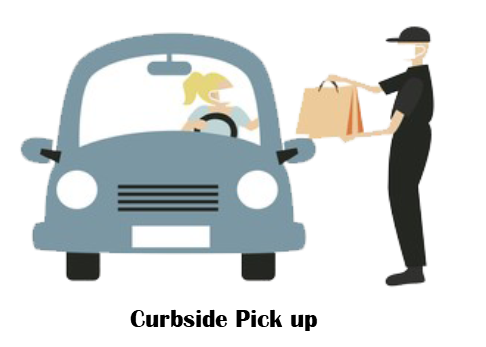
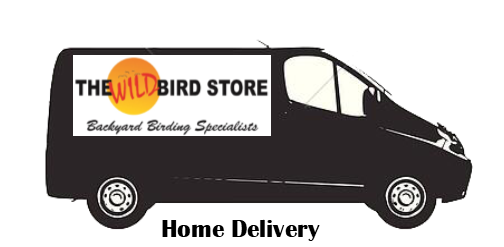
PLEASE NOTE: STARTING IN MAY WE WILL BE GOING TO EVERY TWO WEEK DELIVERY. MAY 2, 16, 30
THE DELIVERY CHARGE WILL BE $10. MINIMUM $25 ORDER FOR DELIVERY.
We deliver every week on Thursdays.
Store hours are:
10:00am to 5:00pm Monday through Saturday
We offer a discount if you return your 20 LB or 40 LB seed bags so that we can re-use them (sorry—not the Mother Nature bags which we cannot re-use), suet ball containers, or if you bring your own container or bag to fill . This discount is in addition to any other discount offered.
Write a Google review on your experience at The Wild Bird Store, and as a thank you, we will give you 100 customer loyalty points ($5.00 value). To get a promo code, kindly email info@wildbirdstore.ca
(one Google review per customer)
Earn 200 customer loyalty points ($10.00 value) by referring a friend, acquaintance or fellow birder.
Please visit the store to get a promo code.
Combining our Seniors 10% discount with the Loyalty Program. (Excludes “sales” items, books & optics).
Discount for membership 10% discount for members of Fish Creek Park, AIWC, Priddis Golf Club, Nature Calgary, Sandy Cross Conservation, Springbank Garden Club and Millarville Horticultural Society. Must present valid membership card at time of purchase.
Discount for Military Members & Veterans 10% discount on
purchases in-store or on Mobile Seed Truck (sorry—excludes “sales”
items, books, optics and consignment items)
Does your Aspects or Squirrel Buster feeder need some replacement parts?

5901 3rd Street S.E.,
Calgary, AB T2H 1K3
email: info@wildbirdstore.ca
(403) 640 2632
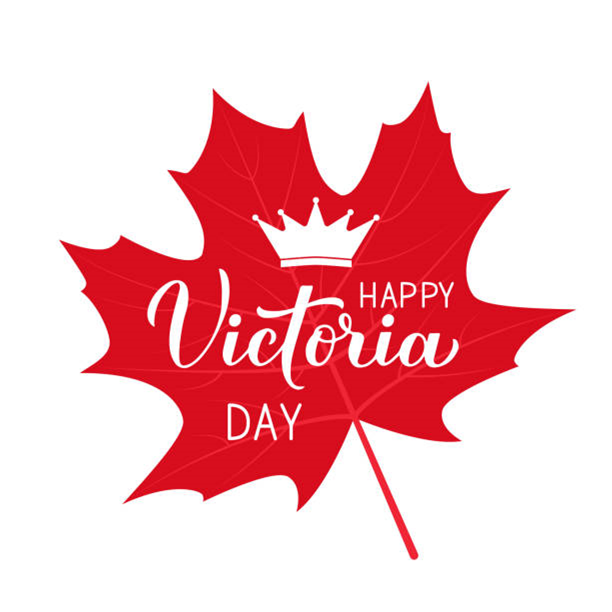
The Store is open Tuesday through Saturday 10:00am to 5:00pm
We are CLOSED Sundays, and ALL Statutory holidays for Faith, Family and Friends.
We still offer curbside pickup every day we are open and delivery service on Thursdays.
FOLLOW US ON:
Facebook @thewildbirdstoreyyc
Twitter @wildbirdstoreyyc
Go to YouTube, type in the search bar “The Wild Bird Store” to watch our videos and to help us become more visible . Be sure to click on “Subscribe” before you leave the page.
